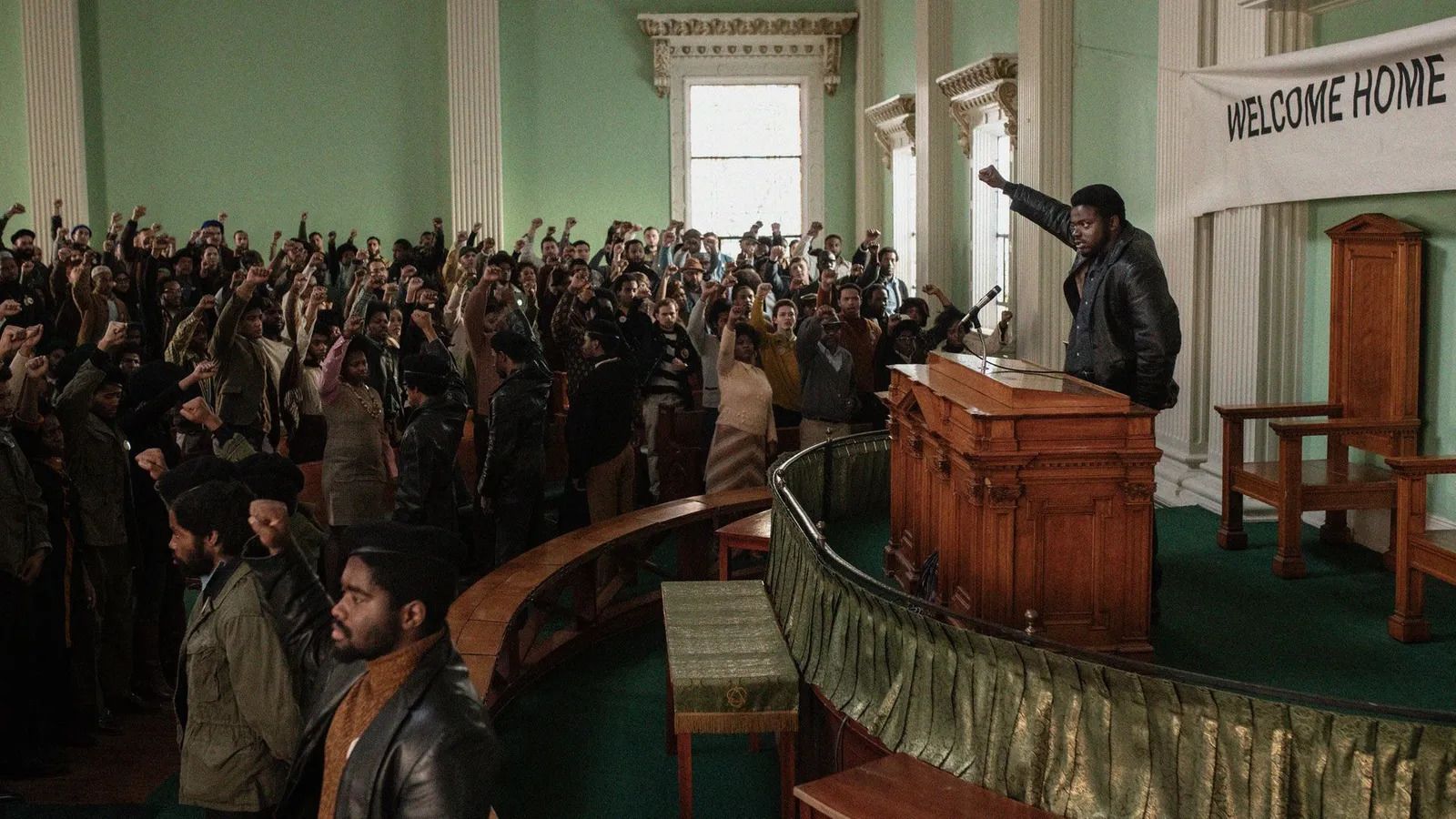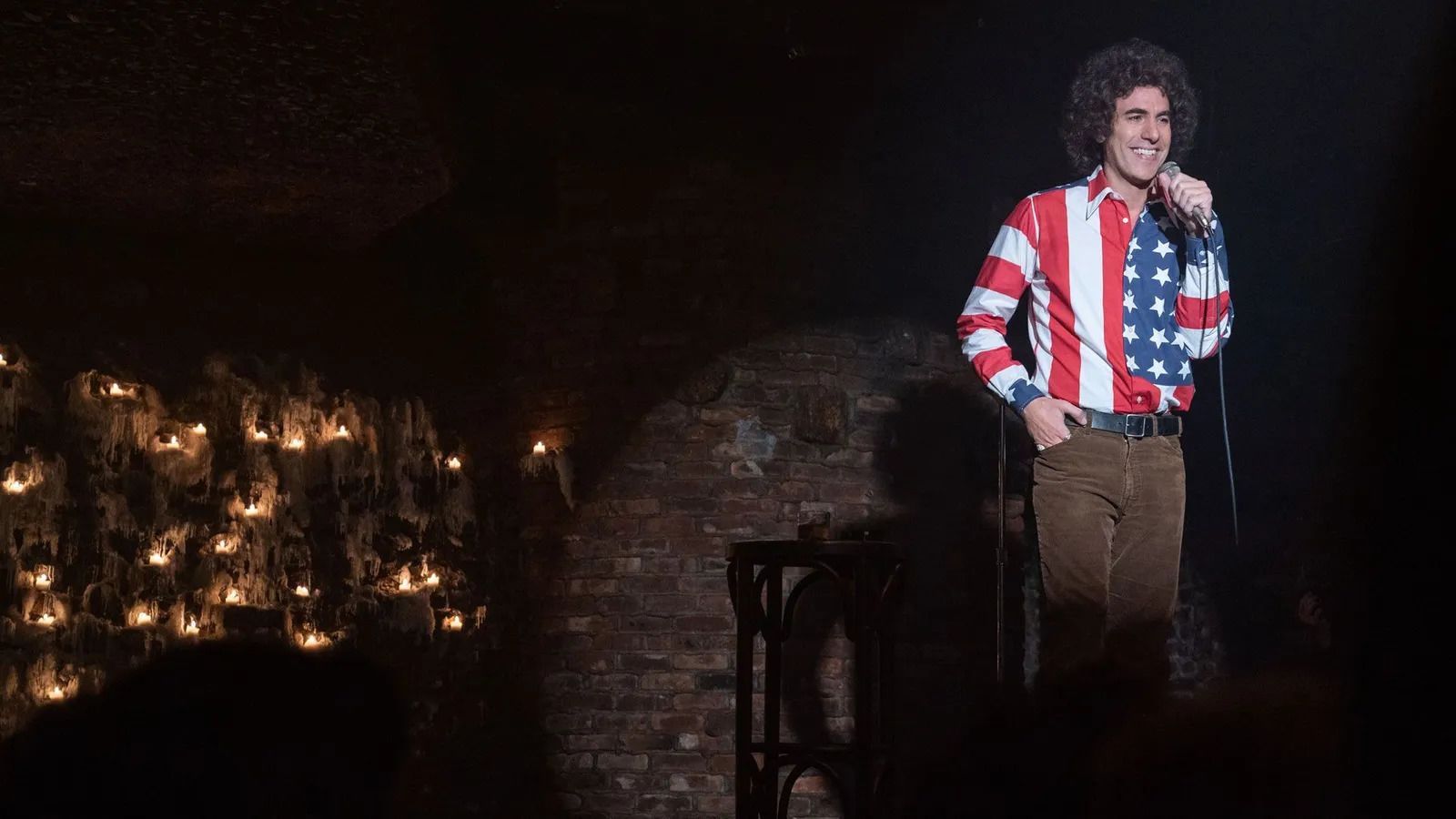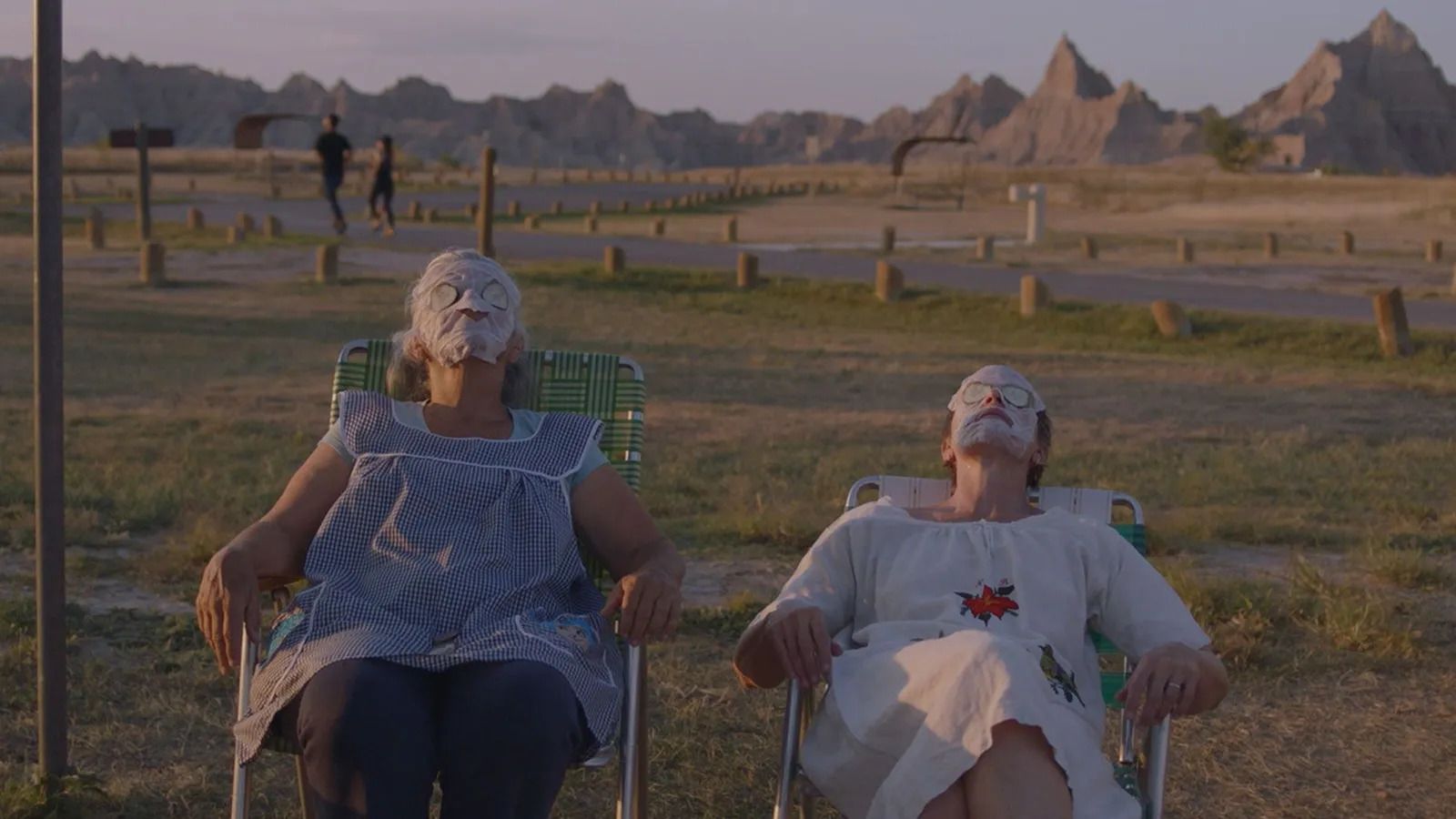
The films redefining the American experience
Former political radicals, the economically dispossessed and beleaguered immigrants are the faces at the centre of this year's dynamic Oscar frontrunners – an unexpected silver lining to an awards season upended by the pandemic. Conventional wisdom says that during times of crisis, such as the Great Depression, moviegoers want escapism. But almost all the franchise-action movies set for 2020 were delayed, and among the few big-budget films that arrived even Tenet and Wonder Woman 1984 fizzled out. Instead, the year has given us powerful social dramas that redefine the American experience with clear-eyed, 21st Century realism.
Among the best picture nominees, Judas and the Black Messiah and The Trial of the Chicago 7 look back to the 1960s and flip the narrative: Black Power and anti-war activists vilified by the mainstream then are today's screen heroes. Nomadland and Minari challenge the myths of the American Dream itself, with its promise of a welcoming country full of economic opportunity. These films offer a recognisable version of the US today, and their embrace by Oscar voters suggests how prevalent those views have become.
Judas and the Black Messiah reframes The Black Panther Party, once seen as a danger to society and now more likely to be viewed as the forerunner of today's racial justice movement. Fact-based, and one of the year's most effective and passionate films, it is set in 1969, when Chicago police, sent by the FBI, murdered Fred Hampton, chairman of the Illinois chapter of the Panthers. Daniel Kaluuya is favoured to win best supporting actor for his fiery performance as Hampton, with co-star LaKeith Stanfield nominated in the same category for playing a small-time crook who infiltrates the Panthers for the government.
The film portrays Hampton as a sensitive individual and a dynamic speaker, willing to give his life for a revolution that will give power to the people. The unmistakable villain is FBI director J Edgar Hoover (Martin Sheen), who for decades was lionised by mainstream America. "The Black Panthers are the single biggest threat to our national security," Hoover says on screen, as he did in real life, in almost those exact words. The FBI, he says, must "prevent the rise" of a Black Messiah. With crowds chanting, "Chairman Fred! Chairman Fred!" at Hampton's speeches, Kaluuya captures the character's messianic appeal.
 Daniel Kaluuya is tipped to win the 2021 best actor Oscar, for his performance in Judas and the Black Messiah
Daniel Kaluuya is tipped to win the 2021 best actor Oscar, for his performance in Judas and the Black Messiah
The film doesn't ignore the Panthers' justification of violence as a path to social justice. "Political power flows from the barrel of a gun," Hampton tells a crowd of followers. Judas doesn't examine that attitude too closely, either, but one thing is clear: all the gunfire and the murders on screen are instigated by the FBI or the police, confirming the screen Hampton's label for them as "bloodthirsty murderous pigs." That theme of police violence makes the film timelier than ever in the US today.
The Trial of the Chicago 7 stands as an easy Oscar choice, benign and safe in its political assumptions as well as its filmmaking
The Trial of the Chicago 7 is a slick Hollywood film, less artfully done than Judas, but it similarly brings a contemporary attitude to its real-life, once-denounced heroes. They were put on trial in 1969, accused of inciting a riot because they had protested on the streets during the 1968 Democratic National Convention in Chicago. Aaron Sorkin, who is nominated for writing the screenplay, also directed, and he often focuses on the conflict among the radicals. Tom Hayden (Eddie Redmayne), the thoughtful, polished leader of SDS (Students for a Democratic Society) argues about strategy with the calculatedly clownish Yippie, Abbie Hoffman (Sacha Baron Cohen, nominated for supporting actor). But their common enemy is the wrong-headed government. In court, the judge is biased and sometimes addled, as he was in life. During flashbacks to the street demonstrations, the Chicago police are corrupt and brutal, cracking protestors' heads and dragging them on the ground. Sorkin himself has called attention to how drastically attitudes have changed since that period, saying in one news interview, "The Chicago 7 were called un-American, unpatriotic... Today it's widely accepted that the protests they led and the thousands of others who protested with them hastened the end of this disastrous war." That idea has become so prevalent that The Trial of the Chicago 7 stands as an easy Oscar choice, benign and safe in its political assumptions as well as its filmmaking.
 Aaron Sorkin's courtroom drama reframes its once denounced protagonists as heroes
Aaron Sorkin's courtroom drama reframes its once denounced protagonists as heroes
Nominees in other categories examine the difference between the US's past and the present, which may be only marginally better, because being aware of a problem doesn't fix it. In Ma Rainey's Black Bottom, the blues singer of the title (Viola Davis, nominated for best actress) fights a racist industry in the 1920s and the late Chadwick Boseman (frontrunner to win best actor) plays a musician struggling with memories of a violent racist attack. In One Night in Miami, four iconic black men in 1964 argue about the best way to use their fame to fight racism. Leslie Odom Jr is nominated for the supporting actor Oscar for his role as the singer Sam Cooke, but it's the radical Malcolm X (Kingsley Ben-Adir), whose real-life reputation has been burnished over time, who expresses the unjust-government theme. The fictional Malcom says of his FBI tail, "Hoover's lackeys have been following me so long they know where I'm going to be before I do."
As beautifully made and eloquent as Nomadland is, at times it sugar-coats the problems it points to
The American Dream has long included the concept of the United States as a place with economic opportunities for all. Nomadland shows how outdated that notion is in today's insecure economy, as it captures the harsh reality of ageing and barely getting by. The central character, Fern (Frances McDormand, a frontrunner for best actress), takes to the road after a factory shutdown decimates her town in 2011. Living in her van, she picks up temporary jobs at an Amazon warehouse and as a janitor at a National Park. Chloé Zhao, who it is widely assumed will win the best director Oscar, surrounds McDormand with real-life nomads playing versions of themselves, let down by a cratering economy and a wobbly government support system. One of them, Linda May, complains that her social security retirement benefit is an unliveable $550 (£400) a month after having worked for decades.
 Chloé Zhao's Nomadland shows how outdated the belief in economic prosperity for all in the US is
Chloé Zhao's Nomadland shows how outdated the belief in economic prosperity for all in the US is
As beautifully made and eloquent as Nomadland is, at times it sugar-coats the problems it points to. The fictional characters, Fern and her friend Dave (David Strathairn), have families willing to take them in. Unlike so many people without resources, they choose whether to stay on the road. Still, Nomadland is so resonant with real-life issues that it has evoked complaints about its depiction of Amazon, considered too kind in light of some workers' complaints about conditions. Zhao has addressed the problem more forcefully off screen than on. "It's so simplistic to say Amazon is the ultimate evil", she said in an interview with Deadline. With or without that giant company, the nomads "still don't have enough social security. Their pensions are gone." The idea of a comfortable retirement built on hard work has felt increasingly archaic over the last few decades, but now truly, it is only a fantasy for many, as Nomadland tells us.
Minari layers that economic idealism with the bedrock concept of the US as a country that welcomes immigrants. Steven Yeun (nominated for best actor) brings quiet strength and nuance to the role of a Korean-American father who moves with his wife and two children from California to a small farm they've bought in Arkansas. The film is so intimate and pertinent that it's easy to forget it is set in the 1980s. But that period setting highlights how much the country has changed. The dream of prosperity, the rugged individualism of a small farmer who would rather struggle on his own than settle for a decently-paid job with no future, is deeply ingrained in the American myth. The crops may wither as the well runs dry, but the family perseveres in its new life. It was easier to believe in that goal in the past, though. The idea has certainly faltered since the great recession of 2008.
 The period setting of Minari emphasises just how much the US has changed
The period setting of Minari emphasises just how much the US has changed
Lee Isaac Chung, nominated for best director and original screenplay, handles the immigrants' perspective with first-hand knowledge and complexity. The wife wonders if they should live among other Koreans, giving them a sense of community. The husband is more keen to leave their roots behind, but he grows Korean vegetables, a choice that binds him to home and is also a savvy way to fill a gap in the market. Immigration today includes preserving cultural identity, no longer the "melting pot" ideal of assimilation that dominated the 19th and 20th centuries.
But those 1980s characters in Minari don't encounter anything like the discrimination or hostility so many immigrants do today, are not called foreigners or worse. Overt bias is only evident in one scene, when children blurt out racial remarks to the Korean siblings. In reality, the film lands in an era fraught with anti-immigrant sentiment around the world, and a recent wave of anti-Asian attacks, physical and verbal, in the US. The dissonance between what is on-screen and off makes a jolting point about the present.
The film also found itself in a mini tempest when the Golden Globe nominations were announced. Minari was in the foreign language film category (eventually winning the prize) and as a result was ineligible for a best picture nomination, even though it was produced and shot in the US. The backlash against the categorization was swift. In a tweet, actor Daniel Dae Kim called the nomination "The film equivalent of being told to go back to your own country when that country is actually America." It also received a Bafta nomination for Film not in the English language. Although the characters speak Korean more often than English, the film's identity goes far deeper than language.
Minari is profoundly American, from its story of hopeful immigrants to the way it intersects with a reality harsher than what we see in such lovely detail on screen. The film is emblematic of a year in which movies have redefined the American story itself, with its ideals, its awareness of how much some of them have been tarnished, and its wonderfully persistent optimism about the future.










